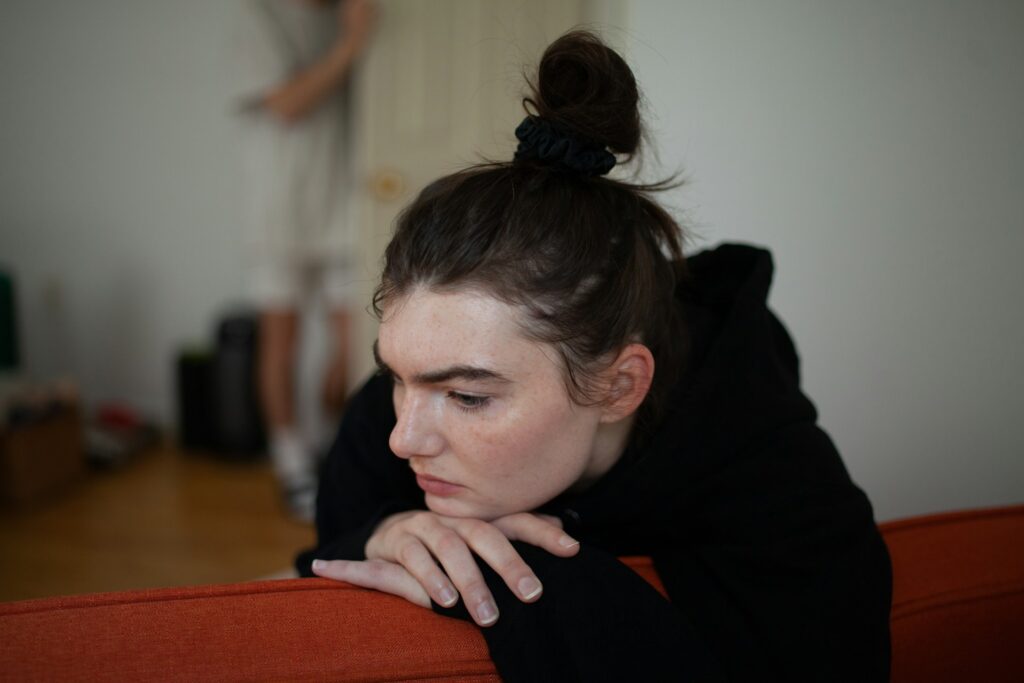Suicide affects more people than we like to admit, but the conversations around it are still awkward, avoided, or buried in silence.

Data from the Office for National Statistics shows that the rates in the UK in 2023 were 11.2 out of 100,000, though that figure rises to 17.1 per 100,000 in men—and numbers are rising across the board. This is just one reason that silence around the topic doesn’t keep anyone safe. If anything, it leaves the people who are struggling feeling even more alone. It’s time we started saying the quiet parts out loud.
1. People think talking about it will make things worse.

One of the biggest myths around suicide is that mentioning it out loud will somehow “put the idea in someone’s head.” But the truth is, people who are struggling have often already thought about it, and what they really need is someone who isn’t afraid to hear them. Talking about it doesn’t cause harm. It gives people a way to breathe, name what’s going on, and feel less isolated in the heaviness they’re carrying. The silence, not the conversation, is what makes things dangerous.
2. We’re scared of saying the wrong thing.

A lot of people avoid the topic because they’re terrified they’ll mess it up—say something insensitive, freeze up, or not know what to do next. So instead, they say nothing, thinking silence is safer than getting it wrong. However, you don’t need the perfect words to show someone you care. What matters is staying with them, listening, and letting them talk without judgement. It’s okay to be unsure. It’s not okay to disappear when someone needs you.
3. There’s still shame wrapped around the word.

Even now, suicide is often spoken about in hushed tones, like it’s something shameful or taboo. That kind of framing makes people feel like they’ve failed just for having those thoughts in the first place. However, suicidal thoughts aren’t a personal flaw. They’re a sign of deep pain, and people in pain need connection, not silence. If we can stop acting like it’s something to be ashamed of, more people will feel safe enough to talk before they reach breaking point.
4. We confuse strength with silence.

So many people have been taught that being strong means keeping it together. That if you’re struggling, the “brave” thing to do is get through it quietly without burdening anyone else. Of course, real strength is telling the truth, especially when it’s hard. And real support means making space for someone else’s truth, even if it makes us uncomfortable. Until we start redefining what strength looks like, we’ll keep pushing people to suffer in silence.
5. Mental health support still feels out of reach.

Even in 2025, getting mental health help can be confusing, expensive, or full of waiting lists. That makes it harder for people to speak up because they feel like there’s nowhere for the conversation to actually go. Plus, if they’ve already tried asking for help before and didn’t get it? They’re even less likely to try again. We can’t keep telling people to talk if we’re not also working to make sure there’s someone listening on the other end.
6. We underestimate how common it is.

Because people don’t talk about suicidal thoughts openly, there’s this idea that it only happens to a small, struggling few. However, that’s not true. Many people have had moments where they’ve felt like checking out. They just don’t say it out loud. The more honest we are about how widespread these thoughts can be, the less alone people will feel when they’re in that place. It becomes something people can relate to, not something they have to hide or lie about to survive.
7. We’re still too focused on fixing, not listening.

When someone opens up about feeling suicidal, the natural reaction is to want to fix it—offer advice, cheer them up, or steer the conversation somewhere lighter. But that can make people feel even more unseen. What most people need in that moment isn’t a solution—it’s space. Just sit with them. Let them talk. Let them cry. Let them say the raw, ugly stuff without rushing to cover it up. That’s what makes them feel less alone.
8. We treat survival like the only success story.

Sometimes the only stories that get shared are the ones with a neat ending—someone reached out, got help, and everything turned around. And while those stories matter, they leave out the messy middle where people still struggle day to day. Not everyone heals quickly or cleanly. Some people just stay. They get through the next hour, the next day. That counts too. We need to make room for the people still in the middle of it—not just the ones who’ve made it out the other side.
9. We don’t want to admit we’ve been there too.

There are so many people who’ve had suicidal thoughts but never told a soul. They got through it, moved on, but never talk about it. And while that’s their choice, it also reinforces the silence around this stuff. If more people admitted, even just once, that they’ve felt that low, it would change the conversation massively. It shows other people that they’re not broken. They’re not the only one. They’re part of a much bigger, more human story than they realised.
10. We haven’t normalised staying alive without having all the answers.

Sometimes people don’t want to die, they just don’t want to feel how they’re feeling anymore. But when they don’t know how to fix it—or how long they’ll have to feel that way—they start thinking maybe it’s easier to just stop everything.
What they need isn’t pressure to be fine. It’s permission to stay. Even if it’s messy. Even if nothing makes sense yet. Even if they don’t know how to explain it. Talking about suicide has to include those grey zones too—not just crisis lines, but everyday check-ins where people can admit they’re not okay without scaring everyone off.


